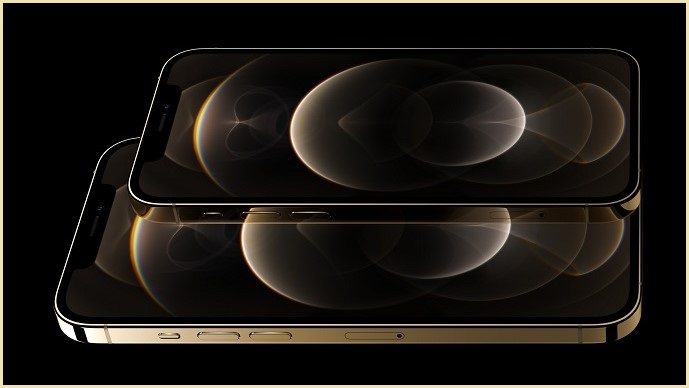The introduction of high-speed 5G technology marks a “new era for iPhone”, with Apple unveiling the latest models of the smartphone.
Apple’s virtual product launch on Tuesday night lifted the lid on the iPhone 12 Pro and iPhone 12 Pro Max, featuring a significant redesign and, controversially, no headphones or charger.
Most significantly, all of the new iPhone models will support the millimeter 5G wave, the higher frequency version of 5G not available in some other smartphone rivals. This will allow the iPhones to reach speeds of up to 5Gbps, even in densely populated areas, the company said.
The integration of the advanced 5G will give users improved speeds, higher quality video streaming, more responsive gaming and better interactivity in apps, Apple said.
The inclusion of this technology is a step-change for the iPhone, Apple CEO Tim Cook said at the event.
“Every decade there’s a new generation of technology that provides a step-change in what we can do with our iPhones,” Cook said. “The next generation is here.
“Today is the beginning of a new era for iphone. Today we’re bringing 5G to iPhone. This is a huge moment for all of us and we’re really excited.”
The “advanced 5G experience” will also include a Smart Data mode, extending battery life by assessing 5G needs and balancing out data usage, speed and power in real time.
“This is a huge leap for iPhone, bringing the best 5G experience in the market and delivering our most advanced technologies to users who want the absolute most from their iPhone,” Apple senior vice-president of worldwide marketing Greg Joswiak said.
“Each generation of iPhone has changed what we expect from a smartphone, and now with 5G, iPhone 12 Pro provides a new generation of performance.”
The millimetre 5G wave is currently only available in Australia in test locations. Earlier this month Google unveiled new versions of its Pixel phones, also with a focus on 5G compatibility.
Killing the cable
The Apple launch event also controversially revealed that the new phones will not come with headphones or a charger in the box, with the tech giant claiming this is being done to reduce its carbon footprint.
The devices will come with a USB-C cable to connect with Macs, but this is not compatible with existing charger adaptors.
This will cut over 2 million metric tons of carbon emissions annually, the equivalent of removing nearly 450,000 cars from the road each year, Apple said.
“Just like we did with Apple Watch, we looked for ways to cut waste and use less material,” Apple environment, policy and social initiatives vice-president Lisa Jackson said.
“Customers already have over 700 million Lightning headphones – there are also over two billion Apple power adaptors out in the world and that’s not counting the billions of third-party adaptors, so we’re removing those items from the iPhone box.”
The smaller and lighter packaging will also mean that 70 per cent more boxes will be able to be shipped on a pallet.
Both of the new iPhones come with a significantly different design with a “ceramic shield”, more reminiscent of much older iPhone models with a flatter edge rather than the rounded look of new versions.
The largest ever iPhone will also feature edge-to-edge Super Retina XDR displays, an A14 Bionic chip offering “impressive computation photography features”, end-to-end Dolby Vision for fast videos and an improved camera, including an Ultra Wide lens and Telephoto camera.
The new iPhones will also come with a new LiDAR Scanner for “immersive augmented reality experiences” and new wireless charging features.
“Our tight integration of hardware and software enables incredible computational photography features like the expansion of Night mode to more cameras, and introduces support for HDR video with Dolby Vision,” Joswiak said.
“A state-of-the-art LiDAR Scanner means users can experience AR like never before, and also offers benefits to the camera with faster autofocus in low light and the introduction of Night mode portraits. These experiences and so much more make this the best iPhone lineup ever.”
The iPhone 12 will cost $1,349, the iPhone 12 Pro will be $1,699 while the iPhone 12 Pro Max will set up back $1,849.
Pre-orders for the iPhone 12 Pro will open on Friday and the phone will be available from 23 October, while pre-orders for the Pro Max will open 6 November and it will be available on 13 November.










